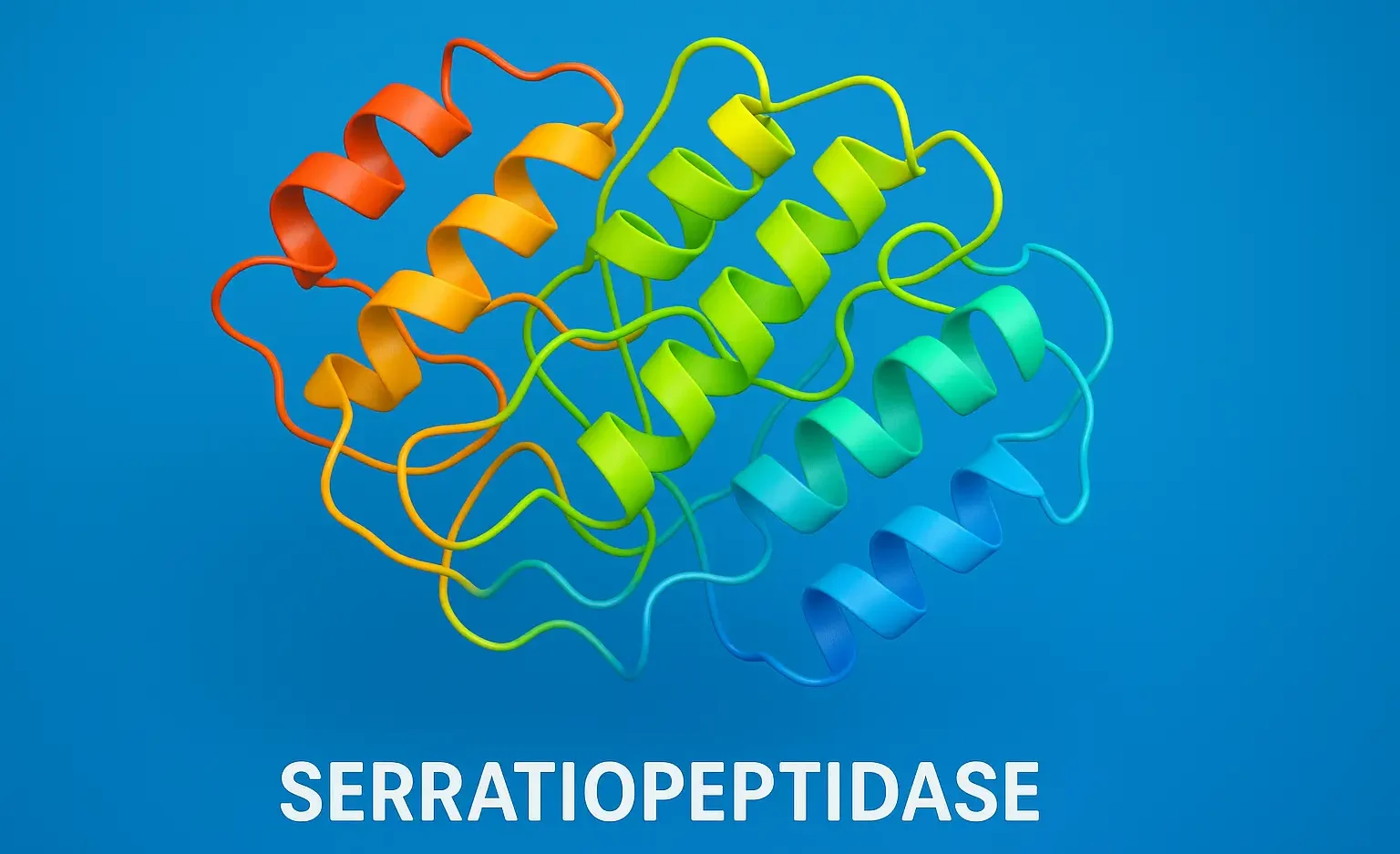- Serratiopeptidase is a proteolytic enzyme with strong anti-inflammatory and pain-relieving properties.
- Serratiopeptidase aids in reducing swelling, easing pain, and promoting faster tissue healing.
General Information
- Synonyms: Serrapeptase, Serratiopeptidase
- Biological Source:
- Derived from Serratia marcescens (bacteria).
- Family: Enterobacteriaceae
- Geographical Source:
- Found in Japan, India, USA, China, Germany.
Macroscopical Characters
- Color: White to off-white powder.
- Texture: Fine, crystalline.
- Taste: Tasteless.
- Odor: Odorless.
Chemical Constituents
- Proteolytic enzyme: Serratiopeptidase (Metalloprotease).
- Other components: Zinc, Magnesium (for enzymatic activity).
- Molecular weight: ~60,000 Da
Mechanism of Action
Serratiopeptidase breaks down inflammatory proteins and fibrin, reducing swelling and pain. It also clears mucus and biofilms in infections.
Preparation
- Bacterial Fermentation:
- Serratia marcescens is cultured in a nutrient medium.
- Purification:
- Enzyme is isolated using centrifugation and precipitation methods.
- Drying & Packaging:
- Freeze-dried and formulated into tablets/capsules.
Evaluation
- Solubility: Soluble in water.
- Purity Tests:
- Proteolytic Activity Test using casein.
Preservation & Storage
- Stored at 4°C in airtight containers.
Therapeutic Uses
- Anti-inflammatory (treats swelling, pain).
- Mucolytic agent (reduces mucus thickness in lung diseases).
- Blood thinner (prevents blood clot formation).
Commercial Utility
- Used in pharmaceuticals (pain relief, enzyme therapy).
- Used in respiratory medicine (reduces mucus in bronchitis).

